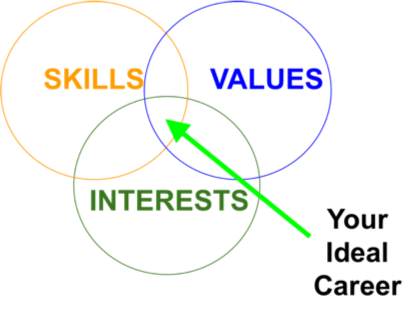By: Jennifer Casiano-Matos A couple of weeks ago, I participated in a career development talk conducted by Lori Conlan, Ph.D.; Director of the Office of Postdoctoral Studies at NIH. In this panel, we discussed how graduate students should focus on the next steps after graduate school or the completion of a postdoc position. In fact, career exploration and the job search is not an easy task—it can almost take the time of a full-time job! First, you have to figure out what you want. Keep in mind your options such as what jobs are available in your desired area and limitations such as geographic preferences, field, etc. For career planning, you first have to make the assessment of knowing your skills, values, and interests. Second, explore the what, who, and where you are on your career development plan. Look for the opportunities that fill those requirements for the position you want and focus on needed skills. Additionally, network with people in that field and build those connections. Remember to be aware and pay attention to how a position aligns with your interests, values, and priorities. While exploring jobs types, you can start by narrowing a list down by different fields such as academics, government, industry, non-profit or on/off the bench. 
To make that first self-assessment, get to know yourself. Identify your interest in the field, your personality and learning style. Keep in mind your work values and preferences such as flexibility or work-life balance, your credentials and restrictions such as moving or family. Your ideal career should be somewhere in the middle of your skills, values, and interests. Always remember that skills can be learned and many are transferable. Luckily, two of our iJOBS own bloggers have excellent articles on transferable skills (Exploring your Skills by Monal Mehta and Discover the Transferable Ph.D. Skills that Make You Employable by Jennifer Casiano)! You will notice that the majority of the recruiters want skills that you currently have such as communication, problem-solving, time management, teamwork, etc.
Second, you need to focus on your interests. What do you actually like to do? Ideally, you want a job that combines as many of your interests possible. Keep in mind that while a skill can be learned, that does not necessarily mean that you are interested in it. According to Dr. Conlan, interests can be divided as follows:
- Realistic (Doers) -Like to work with things
- Investigative (Thinkers) -Like to analyze data and ideas
- Artistic (Creators) -Like self-expression
- Social (Helpers) -Like to work with people
- Enterprising (Persuaders) -Like to build organizations
- Conventional (Organizers) -Like to organize data/info systems
Lastly, always remember your values. They can be defined as cultural, personal, and lifestyle values. Mismatches between your values and job is often a source of dissatisfaction and stress. Now that you have an idea on how to start your career exploration and development you can start with some self-reflection. There is no book, internet page, or blog post that will help you with this. You have to start to know yourself and understand your wants and needs. Outlining careers that are interesting to you is a great way to start exploring! Identify the positions’ defining qualifications, salary, benefits and opportunities. In addition, scheduling informational interviews and networking with people on the field is extremely helpful. The hardest part is keeping in mind what is best for you, but you will never know unless you try. Thanks to Dr. Lori Conlan for these recommendations and I hope they can be helpful for everyone! JCM Edits and contributions to this post were made by Eileen Oni and Paulina Krzyszczyk